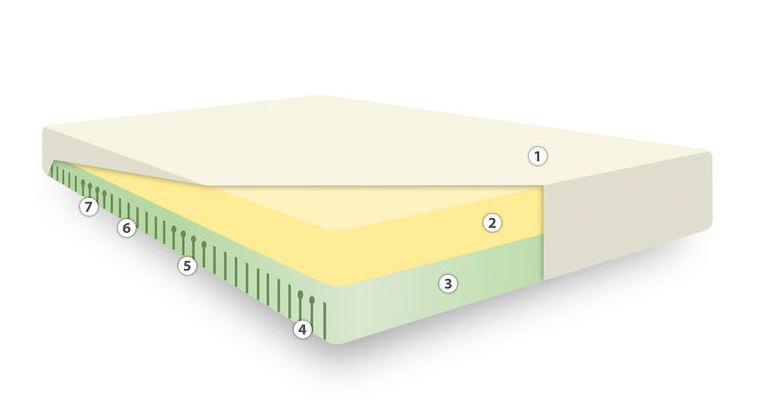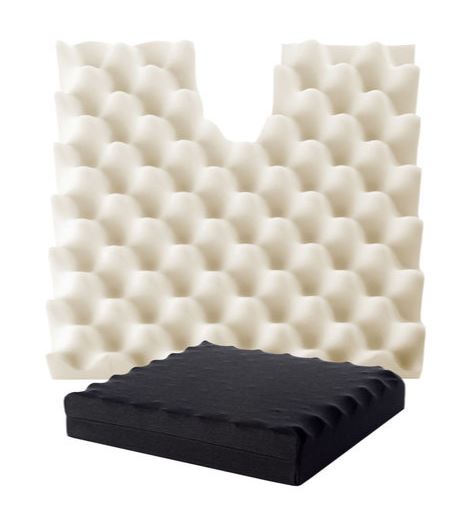
Back pain is an extremely common issue, with 51% of working people in the UK aged between 16 and 65 years suffering. At some point in our lives, everybody will experience some type of back pain, whether it's caused by overexertion, a sporting injury or just age related.
If this sounds like you, CosyCo we have answered 10 of the most common back pain questions on the internet:
Why do I wake up with back pain?
We are easily distracted from the aches and pains associated with back complaints during the day, as we go about our busy lives. At night when we sleep, our bodies relax and get to rest. This immobility can cause stiffness and pain for arthritis sufferers and those with ongoing symptoms, particularly in the mornings when they first rise.
Your mattress could also be contributing to the problem. If it is older than 7 years, doesn’t look level or you can feel the springs, it is not providing the support required to maintain a healthy back. Check out our full range of orthopaedic mattresses here.

Does poor posture cause me back pain?
Actually, there doesn’t seem to be a right or wrong posture solution. The key here is to keep moving. Sitting or standing in one position for too long can set off those dull aches and pains. Listen to your body cues as this can be a good reminder that it is time to move. Moving about, engaging in regular exercise and stretching all help to lubricate your joints and bones which is vital in staying pain-free.
Can stress cause back pain?
Yes it can. Stress and anxiety not only impact the brain but the body as well. If you are experiencing stress, then your body and muscles tend to be unconsciously tense, which can trigger back pain.
What is sciatica?
Sciatica is painful pressure on a specific nerve in the back which is usually caused by a ruptured or herniated disc. It applies pressure to the sciatic nerve which runs from the spinal column, down through the buttock and can cause pain all the way down the back of the leg.
What causes lower back pain?
Also known as lumbago, lower back pain is not actually a disorder, but a symptom of other medical problems. The most common causes of lower back pain are linked to issues with ligaments, muscles, nerves and vertebrae.
When should I see a doctor?
If the pain in your back is recurring, getting worse, or causing other symptoms then it is time to book an appointment with your GP. Other symptoms that may be a cause for concern can include numbness in other parts of the body, weakness or trouble with urinating and bowel movements. Your doctor will be able to offer an assessment to put your mind at ease.
How can I relieve my back pain symptoms at home?
Staying active is the best way to keep your back in good condition. Regular exercise and stretching is a great anti-inflammatory and a fantastic preventative measure. People with back pain are often too scared to carry on with movement, but it really is the key to conditioning.
Are alternative therapies any good?
The simple answer is yes. Acupuncture, massage and manipulations can bring much needed short term relief for some people. Alongside these alternative therapies, it is really important that you remain active and follow the advice provided by the professionals to stay fit, healthy and well rested.
Do I need an MRI scan?
An imaging scan is not always necessary to diagnose and manage pain you may be experiencing in your back. Usually, a physical assessment carried out by your GP can help to identify what is contributing to your back pain.
What treatment options are available?
As mentioned earlier, the best thing to do is to keep moving. Your GP may be able to refer you to a physiotherapist who can provide you with a plan of action and some professional advice about exercises you can carry out. Cold therapy can often bring relief from pain and swelling; this can be in the form of an ice pack or a topical freeze type gel. In more severe cases your GP may be able to prescribe some medication for short term use, to help you manage the pain.
We hope we have answered some of your back pain questions. You may like to take a look through our fantastic range of pressure cushions, back support cushions and pillows specially designed to offer relief and improve back care.

If you are unsure about what is causing your back pain or what is the right solution for you please always consult your GP.